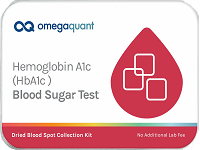Introduction to Sugars
Ah, sugar—the sweet substance that many of us can’t resist! Whether it’s in our morning coffee, baked into a cake, or added to a refreshing soda, sugar is omnipresent in our diets. But what do we really know if the is a healthy sugar or not? In this article, we’ll dive into the different types of sugars, their impact on our health, and how to find a balance that allows us to enjoy sweetness without the guilt. From natural sugars found in fruits to the controversial high fructose corn syrup, we’ll clear the air on sugar’s role in our well-being.

What is Sugar?
Sugar is a type of carbohydrate that provides energy to our bodies. Chemically, it is classified as a simple carbohydrate, which consists of single or double sugar molecules. The most common form of sugar is sucrose, which is extracted from sugarcane or sugar beets. However, sugars can be found in various forms, including glucose, fructose, and lactose, each playing a unique role in nutrition and metabolism.
Types of Sugars: Natural vs. Added
Natural sugars are those that occur inherently in foods, primarily in fruits, vegetables, and dairy products. These sugars come packaged with nutrients, fiber, and water, which help our bodies process them more efficiently.
On the other hand, added sugars are those introduced to foods during processing or preparation. These can often be found in sodas, candy, baked goods, and even savory items like sauces.
Added sugars contribute empty calories—calories that provide energy but little nutritional value—leading to health issues if consumed in excess.
How Sugars Affect Your Health
In moderation, sugars serve as a vital energy source for our bodies. When consumed, sugars are broken down into glucose, which is then utilized by our cells for energy. This is particularly important for brain function, as the brain relies on glucose as its primary energy source. However, too much sugar can lead to various health concerns, including obesity, diabetes, and heart disease.
Cravings
Moreover, sugars play a role in enhancing the taste and texture of foods, making them more enjoyable. This sensory pleasure can lead to increased consumption, creating a cycle of craving that can be hard to break. Thus, understanding how sugars affect our brain and body is crucial in managing our intake.
High Fructose Corn Syrup: The Sweet Saboteur
High fructose corn syrup (HFCS) is a sweetener derived from corn starch, and it has become a staple in the food industry due to its low cost and versatility. HFCS is often used in processed foods and beverages, creating a sweet, addictive flavor that many people enjoy. However, it has garnered a bad reputation for its potential health risks.
Research suggests that HFCS contributes toward obesity and metabolic syndrome more than regular sugar because of how it is metabolized in the body. Unlike glucose, fructose is processed in the liver and can lead to fat accumulation when consumed in excess, causing a term called “fatty liver disease”. This makes understanding the sources of HFCS in our diets vital for maintaining health.
Effects of Sugar on Illness
The implications of excessive sugar consumption extend beyond weight gain. Studies have linked high sugar intake to a host of chronic illnesses, including type 2 diabetes, heart disease, and even certain cancers. The American Heart Association recommends limiting added sugars to no more than 6 teaspoons for women and 9 teaspoons for men per day, but many people exceed these limits significantly.
Additionally, sugar can affect mental health, leading to mood swings and increased anxiety. The rapid spikes and crashes in blood sugar levels can contribute to feelings of irritability and fatigue, creating a cycle of dependence where individuals reach for more sugary foods to feel better temporarily. Awareness of these effects can empower health enthusiasts and parents alike to make informed dietary choices.
Sugar Consumption: The Numbers Game
Annual Sugar Consumption Statistics
In recent years, sugar consumption has reached alarming levels. According to the World Health Organization, global sugar consumption averages around 23 teaspoons per person per day! This staggering figure reflects a trend toward processed foods and beverages that are often laden with added sugars.
In the United States, the average adult consumes approximately 17 teaspoons of added sugar daily, far exceeding the recommended levels. This abundance of sugar can have detrimental effects on public health, leading to a greater prevalence of obesity, diabetes, and heart disease. Understanding these statistics can help individuals recognize the need for change in their dietary habits.
How Much Sugar Should You Really Have?
As mentioned earlier, health organizations recommend limiting added sugars to maintain optimal health. A good rule of thumb is to focus on the quality of calories rather than just the quantity. Instead of counting each teaspoon of sugar, aim to consume a diet rich in whole foods—fruits, vegetables, whole grains, and lean proteins—that naturally contain sugars.
When reading nutrition labels, pay attention to both the sugars and added sugars sections to make informed choices. This practice can help you keep track of your sugar intake while allowing you to enjoy the occasional treat without guilt.
Life Without Sugar
Positive Changes When You Eliminate Sugar
Deciding to cut back on sugar can yield numerous health benefits. Many people report improved energy levels, better sleep, and enhanced mood after reducing their sugar intake. Additionally, weight loss can occur as the body learns to rely on healthier sources of energy.
Eliminating sugar can also lead to a more mindful approach to eating. By focusing on whole, unprocessed foods, individuals may discover new flavors and textures, reigniting their passion for cooking and healthy eating. A diet lower in sugar may even improve skin health, as excess sugar has been linked to acne and skin aging.
Challenges and Withdrawal Symptoms
However, cutting sugar isn’t always as sweet as it sounds. Many people experience withdrawal symptoms when they drastically reduce their sugar intake. These can include headaches, fatigue, and cravings for sugary foods as the body adapts to a new way of eating. Understanding these challenges can help you prepare for the transition.
It’s essential to approach sugar reduction gradually rather than going cold turkey. Starting by reducing added sugars in your beverages and sauces can make the process more manageable. Experimenting with natural sugar substitutes can also satisfy your sweet tooth without the same level of guilt.
Natural Sugar Substitutes
Top Natural Sugar Substitutes to Consider
As you navigate the world of sugar, there are several natural substitutes that can help you satisfy your cravings without the negative health implications of refined sugar. Here are a few popular options:
- Stevia: A plant-derived sweetener that is calorie-free and much sweeter than sugar, making it an attractive option for those watching their caloric intake.
- Honey: A natural sweetener that offers some vitamins and minerals and has antimicrobial properties. However, it should still be used sparingly.
- Maple Syrup: A rich source of antioxidants, maple syrup can provide a unique flavor profile in recipes.
- Agave Nectar: Sweeter than sugar, agave nectar has a low glycemic index but is still high in fructose, so moderation is key.
- The following whole foods can be used as sweeteners: dried fruits like dates and raises, fruit puree, or fruit conserve.
- Also, you can soak dried fruits overnight and use the liquid as sweeteners.
Benefits of Using Sugar Substitutes
Using natural sugar substitutes can help manage cravings while promoting overall health. They often come with added nutrients, unlike refined sugars, which offer no nutritional benefits. By opting for these alternatives, you can enjoy sweet flavors without spiking your blood sugar levels significantly.
Moreover, many natural substitutes have unique flavors that can enhance dishes in ways that plain sugar cannot. This variety can make healthy eating more enjoyable, encouraging a sustainable lifestyle change rather than a temporary diet.
The Lowdown on Artificial Sweeteners
What Are Saccharin and Aspartame?
Artificial sweeteners like saccharin and aspartame have become popular alternatives to sugar for those looking to reduce caloric intake. These sweeteners are often found in diet sodas and sugar-free snacks, providing sweetness without the calories associated with sugar. However, their safety has been a topic of considerable debate.
Saccharin, one of the oldest artificial sweeteners, has been linked to health concerns. Aspartame, another widely used sweetener, has also faced scrutiny, particularly regarding its potential neurotoxic effects. While regulatory agencies like the FDA deem them safe, ongoing research continues to evaluate their long-term effects on health.
Potential Health Risks of Artificial Sweeteners
Despite their low-calorie allure, artificial sweeteners can affect health in unexpected ways. Some studies suggest that they may disrupt gut microbiota1, which would have implications for digestion and metabolism. Additionally, consuming artificially sweetened products may lead to increased cravings for sugary foods, potentially sabotaging weight loss efforts.
Conclusion: Finding Your Sugar Balance
As we’ve explored, sugar comes in many forms, each impacting our health differently. With awareness about the effects of sugar, both natural and added, you can make informed choices that align with your wellness goals. Remember, moderation is key; it’s not about completely eliminating sugar but rather finding a balance that works for you.
Whether you’re experimenting with natural substitutes or reducing your intake of added sugars, staying mindful can lead to a healthier lifestyle. Each small change contributes to your overall well-being, allowing you to enjoy the sweet moments in life without compromising your health.
FAQ’s About Sugar
What are the healthiest sugars?
Honey, Maple syrup, Agave nectar, Coconut sugar, Stevia, Monk fruit sweetener, Date sugar, Brown rice syrup, Yacon syrup, Raw cane sugar
What are the different types of sugar?
There are two primary types of sugar: natural sugars, which occur in whole foods like fruits and dairy, and added sugars, which are incorporated during processing, such as in sodas and baked goods.
Is sugar really harmful to my health?
Excessive sugar consumption has been linked to various health issues, including obesity, type 2 diabetes, and heart disease. Moderation is key to maintaining a healthy balance.
Are natural sugar substitutes healthier than sugar?
Natural sugar substitutes often come with added nutrients and fewer calories. However, moderation is still important, as some substitutes can impact blood sugar levels.
Which is the best alternative for sugar?
Stevia.
What is a good substitute for white sugar?
Honey, maple syrup, agave nectar, or coconut sugar.
What are some signs that I might be consuming too much sugar?
Common signs include fatigue, mood swings, cravings for more sugar, and unexplained weight gain. If you notice these symptoms, it might be time to reassess your sugar intake.
How can I reduce my sugar intake?
Start by reading labels to identify added sugars, gradually reduce sugary beverages, and experiment with natural substitutes in your cooking and baking.
How do I test sugar levels in my body?
A finger prick test will show what your glucose level is at a point in time, however a better test is the Hemoglobin A1c test which reports your average glucose level over time. This test can be easily done at home. See test below.
At Home Tests
-
←→

OmegaQuant Hemoglobin A1c (HbA1C) Test Kit
$59.95Maximum quantity exceededMinimum purchase amount of 0 is requiredOmegaQuant Hemoglobin A1c (HbA1C) Test Kit
$59.95Successfully Added to your Shopping CartAdding to Cart...
Products
-
←→

GTF Chromium Glucose Tolerance Factor
$4.60GTF Chromium Glucose Tolerance Factor with 200 mcg ChromiumGTF Chromium Glucose Tolerance Factor
Supplements, Mineral Supplements, Diabetes Solutions, Skin Solutions, Heart Solutions, Muscle Solutions, Anxiety, Stress, Depression Solutions, Fatigue Solutions$4.60Successfully Added to your Shopping CartAdding to Cart...
References
- https://www.dietaryguidelines.gov/sites/default/files/2020-12/Dietary_Guidelines_for_Americans_2020-2025.pdf
- https://www.fda.gov/food/nutrition-facts-label/added-sugars-nutrition-facts-label
- https://links.e.response.mayoclinic.org/EmailPreview-GeneralHealth
- https://www.accessdata.fda.gov/scripts/cdrh/cfdocs/cfcfr/cfrsearch.cfm?fr=172.804
- https://www.fda.gov/food/food-additives-petitions/aspartame-and-other-sweeteners-food
- https://www.who.int/news/item/15-05-2023-who-advises-not-to-use-non-sugar-sweeteners-for-weight-control-in-newly-released-guideline
- https://www.fda.gov/food/food-additives-petitions/additional-information-about-high-intensity-sweeteners-permitted-use-food-united-states
- https://www.who.int/news/item/14-07-2023-aspartame-hazard-and-risk-assessment-results-released
